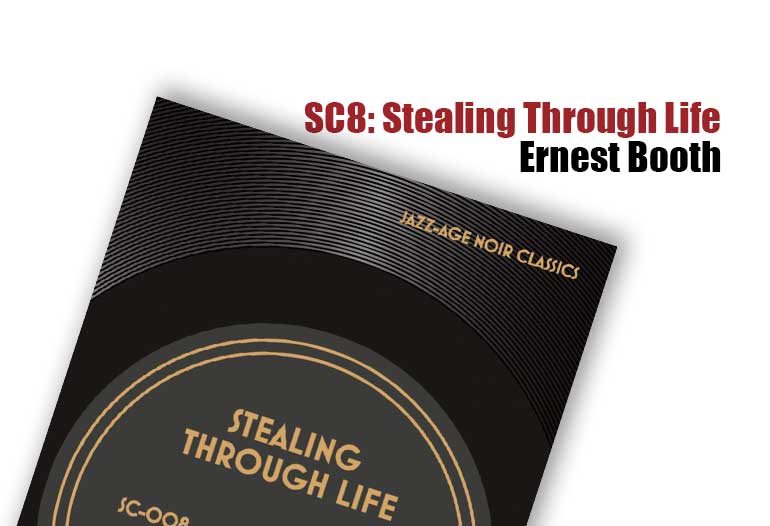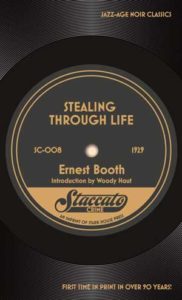Long out of print, Stealing Through Life is the perfect complement to the earlier Staccato reprint, Grimhaven by Robert Joyce Tasker. Tasker and Booth were both inmates in San Quentin and became friends through Tasker’s writing group. They agreed Tasker would write about life inside, and Booth about the criminal life outside. As good as Grimhaven is, Booth’s detailed account of his criminal life deserves as much, or even more, praise.
First off, Booth can write. His early fascination with reading paid off later with his fluency and skill when expressing himself in prose. He freely shares his feeling and emotions regarding his partners in crime, victims, bystanders, and the events of his life.
He either has an exceptional memory or he’s taken a conman’s flair for artistic license as he traces his life of crime from its earliest beginnings as a teen into adulthood, culminating in his memoir’s climactic event; a bank robbery he commits with a number of accomplices.
Most of the book is a first-person account, but occasionally Booth lapses into a sort of trance and describes his actions as if he’s viewing himself from afar. It’s this strange perception of the world that provides a possible explanation as to how he’s able to do what he does without guilt or regret. His humanity does show through at times, but he often comes off as callous and unrepentant.
He travels around the country throughout his story—either to elude authorities or to break into fresh territory. His detailed references about his locations, and his use of jazz-era jargon, enhance the realism of his narrative.
It is quite likely he’s an unreliable narrator. Like everyone else, he’s the hero of his own story, so his perception and prowess are likely stilted, but he does an excellent job selling his version of events.
True crime fans will relish this candid look into a criminal mind and its methods.



Comments are closed.